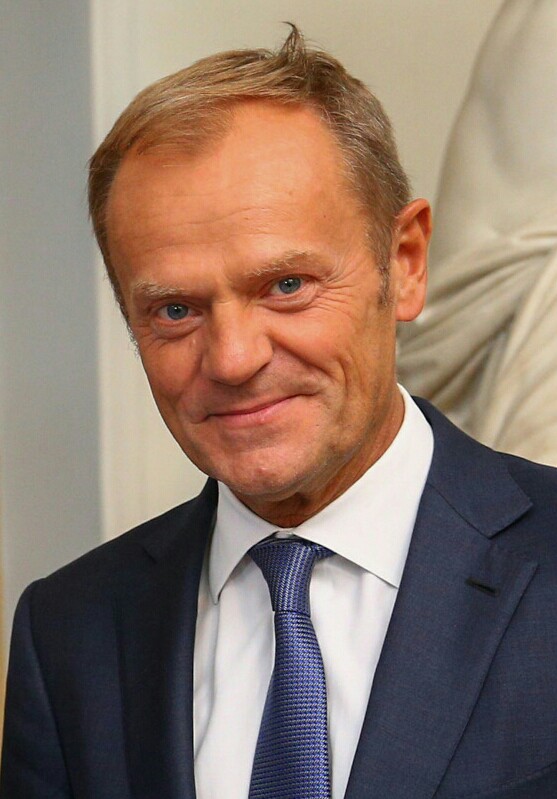
BEIJING – A senior European Union official on Monday urged President Donald Trump, Russian President Vladimir Putin and China to work with Europe to avoid trade wars and prevent conflict and chaos.
European Council President Donald Tusk was speaking in Beijing at the opening of a summit between China and the European Union, just hours ahead of a summit between Trump and Putin in Helsinki.
“We are all aware of the fact that the architecture of the world is changing before our very eyes and it is our common responsibility to make it a change for the better,” Tusk said.
Last week, Tusk lambasted Trump’s constant criticism of European allies and urged him to remember who his friends are when he meets Putin. In Beijing, Tusk said that Europe, China, the U.S. and Russia had a “common duty” not to destroy the global order but to improve it by reforming international trade rules.
“This is why I am calling on our Chinese hosts, but also on presidents Trump and Putin, to jointly start this process from a thorough reform of the WTO,” Tusk earlier said, referring to the World Trade Organization by its acronym. “There is still time to prevent conflict and chaos.”
Washington imposed 25 per cent tariffs on $34 billion of goods in response to complaints that Beijing is hurting American companies by stealing or pressuring enterprises to hand over technology. It has also applied tariffs on imported steel and aluminum from allies like Canada, Mexico and the European Union. The 28-country EU bloc has responded with import taxes on $3.25 billion of U.S. goods.
Chinese Premier Li Keqiang said Monday that China and the EU had agreed to take steps to “safeguard free trade” and the global multilateral regulatory system. He endorsed efforts to update World Trade Organization rules that Washington complains are outdated and cumbersome.
Asked whether China used Monday’s meeting to try to form an alliance with the EU against Washington, Li said the U.S.-Chinese dispute was a bilateral matter for Beijing and Washington to solve.
“Our summit is not directed at any third country,” said Li at a joint news conference.
Chinese leaders have tried without success to recruit German, France and other governments as allies against Washington.
“We see a China that is seeking alliances as countermeasures to the U.S. actions,” the president of the European Union Chamber of Commerce in China, Mats Harborn, said last week.
European leaders criticize President Donald Trump’s tactics but share U.S. complaints about Chinese industrial policies and trade barriers.
A European Union report last month said Beijing had imposed more new import and investment barriers in 2017 than any other government. The 28-nation EU is China’s second-biggest trading partner after the United States.
The EU cited “rising obstacles” in China’s semiconductor, cybersecurity and other industries.
“Protectionism is on the rise,” the report said. “China was identified as the partner contributing the most to this trend.”
Li has tried appeal to visiting European leaders including German Chancellor Angela Merkel in May by saying their companies were welcome to invest.
The premier gave no indication whether Beijing would act on complaints European companies are blocked from acquiring most Chinese assets while its companies operate freely abroad.
During a visit to Berlin by Li this month, German and Chinese companies signed deals worth 20 billion euros ($24 billion).